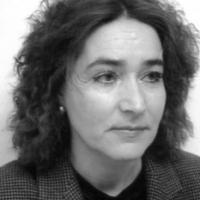
I am a Norwegian Researcher, Dr/PhD, History, Government Scholar (Norwegian, statsstipendiat). I am a former Marie Curie Intra-European Fellow in the Department of Archaeology and History of Art at the National and Kapodistrian University of Athens, Greece, where I worked on the project, “Greek Women and Death, Ancient and Modern: A Comparative Analysis”, financed by the EU’s 7th framework Programme. In the period 1990-2008 I was affiliated with, inter alia, the University of Bergen, Norway, where I worked as Lecturer/Research Fellow in history. Since 2009 I have lectured at several European Universities.
Since 1983, I have had several periods of fieldwork in the Mediterranean, mainly in Greece and Italy, where I have also been conducting research on religious festivals and life-cycle rituals since 1987. My monographs and many articles combine fieldwork results with ancient sources, and the most important include, Greek Festivals, Modern and Ancient: A Comparison of Female and Male Values (Newcastle upon Tyne: Cambridge Scholars Publishing) 2 vols from 2017 (a Norwegian version was published in 2007: Kristiansand: Norwegian Academic Press), Rituals of Death and Dying in Modern and Ancient Greece: Writing History from a Female Perspective (Newcastle upon Tyne: Cambridge Scholars Publishing) from 2014, Competing Ideologies in Greek Culture, Ancient and Modern (Newcastle upon Tyne: Cambridge Scholars Publishing) forthcoming 2019 (a Norwegian version was published in 2011: Bodø: Licentia Publishers), and the edited book Women, Pain and Death: Rituals and Everyday-Life on the Margins of Europe and Beyond. Newcastle upon Tyne: Cambridge Scholars Publishing from 2008. I currently work on the project, The Dangerous Life: Gender, Pain, Health and Healing in Modern and Ancient Greece, a Comparison, drawing on the same methodology as in my previous books; i.e., using modern in conjunction with ancient sources to shed new light on the ancient world, however, here I focus on healing.
Regional and research interests:
Anthropological and cultural history of Ancient (archaic/classical/late-antiquity), Byzantine and Modern Greek, East-European, Balkan and Mediterranean region and Diasphoras. Research interests encompass theoretical and methodical problems: Comparative studies/Interdisciplinary approaches to religion, society, gender and women’s studies; with particular interest on popular and everyday religion, the ritual year, festivals, life-cycle passages, healing, rituals in connection with water; ideologies and mentalities; cultural continuity/discontinuity.
There is a growing body of scholarship and interest in life-cycle rituals in general and particularly death-rituals, and in all cases an awareness that women’s role in these rituals is a prominent one, and that they need to be understood and studied. My untraditional methodological approach to the study of women’s ritual activities in modern Greece, in connection with religious festivals and life-cycle passages such as death-rituals and their relation to ancient Greek ritual behaviour, tries to reinterpret our classical sources in order to arrive at a more comprehensive view of both ancient and modern Greek religion. This particular method is not usual since researchers who work on ancient sources generally do not carry out fieldwork themselves, but rely on the results from other researchers, mostly from ethnographers. Since I explore how the study of oral culture can help fill out our knowledge and redress an imbalance in our view of the past, my approach can shed new light on both modern and ancient Greece, and enable us to see both from a fresh perspective. Multidisciplinary research is what is needed when we are dealing with such complex subjects as ritual behaviour, and my work is a contribution to the studies of Greek history, religion and ethnography.
I have also taken on board a vast subject of major importance for understanding the culture of Europe as a whole. I see the lack of attention to the oral culture of Europe as a major barrier to inter-cultural understanding. There has been a strong tendency to set Europe apart from the rest of the world and equate it with the literate stream; if we bring into consciousness the latent part of the European heritage, international communication with people from those parts of the world that have a stronger oral base will be much improved and I see this as being of the greatest social importance. Part of the European neglected latent heritage is the female component and I have been concerned with bringing this into fuller awareness.
My work tries to rethink the history of Europe, encompassing also its Mediterranean and eastern peripheries, and has innovative historiographical and methodological practices. By its ancient and modern material, the research demonstrates a transnational, comparative and longue durée approach to Europe’s History. It has relevance for several areas of the European peripheries. Since many of the values in Greece have parallels with the values in the Eastern part of Europe, there is no doubt that this comparative approach will be of great value in future research, in particular concerning the contemporary situation of the expansion of the European Union. One may also mention immigration to Europe from non-European countries, since people from these areas share many cultural traits with Greece and the eastern European areas, such as in connection with religious popular festivals and death-rituals, which might be foreign to people from the Northern/Western parts of Europe and the U.S.A. and therefore difficult to understand. My research then, has relevance for comparisons on a broader civilizational level.
